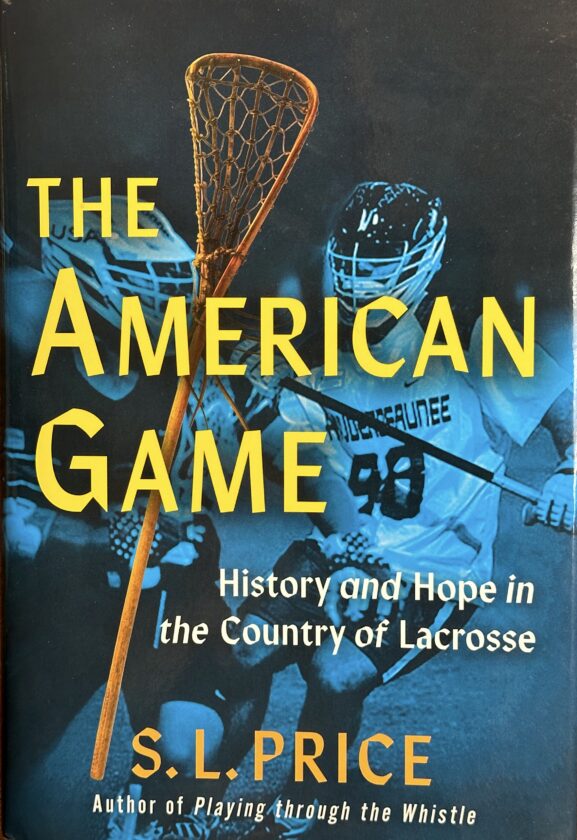Lacrosse: A Reflection of American History
LAKE PLACID — Few sports encapsulate the essence of American history as richly as lacrosse. This intricate connection between the sport and the nation’s narrative is explored in-depth by veteran sports journalist Scott Price in his latest book, “The American Game: History and Hope in the Country of Lacrosse.” As the United States gears up for the LA 2028 Summer Olympics, Price’s work presents a timely discussion on a compelling and controversial storyline surrounding the game and its indigenous roots.
An Author’s Insight: Scott Price
Scott Price’s journey into sports journalism began during his time as an English major at the University of North Carolina at Chapel Hill, coinciding with the era when basketball legend Michael Jordan graced the campus. His experience at the school newspaper ignited a passion for storytelling, leading him to cover the Sacramento Kings for the Sacramento Bee. In Sacramento, Price honed his skills for uncovering breaking news, but he quickly learned that sports narratives often carried deeper implications.
“The stories are about something bigger than just the game,” Price notes, recalling how the vibe of a city striving for major league status intertwined with issues such as crime and urban development. “You write about a lot of different things that you couldn’t necessarily write about in other sections of the newspaper,” he explained, emphasizing the unique power of sports journalism to reach wide audiences.
After a long stint at Sports Illustrated, where he published five books, including “The American Game,” Price has become adept at exploring the crossroads of sports and culture through his narratives.
Lacrosse and the Haudenosaunee Legacy
One of the most poignant aspects of lacrosse’s narrative lies in its deep-rooted history with the Haudenosaunee Confederacy, composed of the Seneca, Cayuga, Onondaga, Oneida, Mohawk, and Tuscarora Nations. This indigenous group has played the sport in various forms for over a millennium, reflecting both cultural heritage and community spirit.
Price’s keen interest in lacrosse intensified when he began covering stories surrounding the Haudenosaunee. Notably, when Britain refused to honor their passports, the Haudenosaunee tragically withdrew from the 2010 and 2015 world championships—a bold statement highlighting the sport’s significance beyond mere competition.
“The sport was more than just about winning,” Price stated. “It was about a lot of different things.” He became fascinated with the ways lacrosse serves as a powerful symbol of identity and resilience for the Haudenosaunee people.
Weaving Multiple Narratives
In “The American Game,” Price crafts a rich tapestry with multiple threads—spanning from the Haudenosaunee’s struggle for recognition to the deeply controversial 2006 Duke lacrosse case which cast a long shadow over the sport. He also describes the influence of women in the sport, particularly within the NCAA, as well as contributions from blue-collar pioneers that challenge the stereotype of lacrosse being a game for the elite.
His extensive reporting involved conducting around 370 interviews and traveling globally, from the fields of America to the world championships in Israel in 2018. This breadth of research allows for a nuanced portrayal that defies the conventional image of a lacrosse player and reveals the sport’s fundamental ties to the American experience—both its triumphs and its trials.
The Road to LA 2028
As lacrosse prepares for its return to the Olympic stage—marking the first inclusion since 1904—the book underscores significant dilemmas impacting the sport. Price reflects on the accompanying politics and controversies that have historically surrounded the Olympics. After attending ten Olympic Games, he notes the recurring themes of discontent regarding venues, costs, and ethical concerns. Yet, he also recognizes the universal draw of the Games, stating, “The instant the games begin, it all goes away … there are moments that will always capture you in an Olympics.”
The upcoming LA Olympics will serve as a litmus test for the International Olympic Committee’s stance on including the Haudenosaunee, whose unique status as original players of the game demands acknowledgment. Throughout its history, lacrosse has mirrored the struggles and triumphs of Native Americans, acting as a lens through which to understand their ongoing experiences with identity and representation.
A Metaphor for Displacement
Price poignantly articulates that lacrosse is not just a game but a powerful metaphor for the displacement and challenges faced by Native Americans. “It’s a metaphor for the theft of the North American continent,” he asserts, highlighting the sport’s origins from natural materials found in the North American landscape. The game’s sticks crafted from hickory and balls made of deerskin woven with feathers symbolize a connection to the land and heritage that has been persistently at risk of erasure.
As Scott Price prepares to engage with the community in Lake Placid, he emphasizes that the story of lacrosse—and by extension, that of the Haudenosaunee—is deeply meaningful, resonating within the broader context of American history. His journey through the sport reveals a compelling narrative that pushes the boundaries of traditional sports storytelling.



